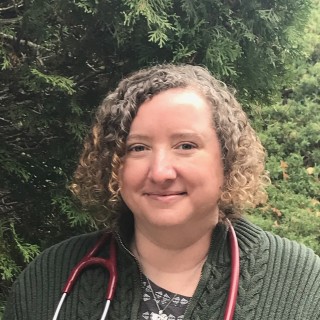
“Paying attention in a particular way: on purpose, in the present moment, and nonjudgmentally.” That’s how Jon Kabat-Zinn, PhD, describes mindfulness. In the book Zen Mind, Beginner’s Mind, another thought leader in mindfulness, Shunryu Suzuki, says that, “In the beginner’s mind there are many possibilities, but in the expert’s there are few.” In my experience, I’ve found that cultivating a beginner’s mind opens doors and improves clinical diagnosis.
Medical training has phases, and clinicians in different phases think differently. In medical school, students learn all the zebras. To a student, every vomiting infant is thought to have volvulus or a metabolic disorder. Every abnormal CBC is leukemia. Then, in practice, most vomiting infants are found to have gastroenteritis and most abnormal CBCs have a more-benign explanation, such as a routine infection. Skilled physicians try to keep an open mind about having a broad differential diagnosis, but the parade of the routine can dull the mind.
I’ve had my own experience with a “zebra” condition and its evaluation by a perhaps weary clinician. After an ER trip for severe pain, a follow up CT scan, and numerous examinations, I was discharged with no diagnosis and no treatment plan. End of inquiry. Later providers did more to take a full history and let curiosity sink in. After many painful weeks, I had my diagnosis: zoster sine herpete. Shingles without a rash.
I only found a diagnosis because I persisted and continued to present to specialists. I did my own research, and I googled: both things many doctors hate to hear from a patient. Many patients with a rare disease have had a similar experience — being dismissed, being persistent, googling, until finally getting a diagnosis. Many people I have met with rare diseases, particularly those mainly characterized by pain and fatigue, have a negative view of medical providers. It is sad that a group of people who really need medical care and compassion do not often find it. The medical community is failing this population and needs to do better.
The valuing of both compassion and curiosity found in mindfulness can serve this population well.
As a provider, what did I learn from my experience? I learned that when faced with puzzling clinical presentations to approach them with a beginner’s mind. To clear my head of what the process “should be” or how it is “supposed to present.” To resist the urge to dismiss a patient’s complaints as “all in their head” when they don’t fit the textbook story. Common illness can present in uncommon ways, and uncommon illnesses can present in common ways. If all the tests are coming back normal, it doesn’t mean the illness is not real. Perhaps the right test has just not been run. If a test result is abnormal — delve into why. What physiology is behind it that might explain the process and lead to a diagnosis? Go back to the books. Look up the main symptoms in online resources and texts using the most basic of search terms.
This approach has served me well. In one instance, I saw a teen with profound fatigue and some laboratory abnormalities and some distracting confounders. He had been seen and discharged from two ERs with no diagnosis. Although I initially pursued one of the confounders, I opened my mind and pondered the patient’s presentation all day. I scanned my brain for memories and facts relating to his presentation. I recalled a fellow yoga class participant from 15 years prior who kept fainting in class and his eventual rare disease diagnosis. Simultaneously, I looked up the patient’s most notable lab abnormality in texts and found the two diagnoses lining up. In the end I diagnosed him with a zebra, Addison’s, just as he was entering Addisonian crisis. (1) This is exactly why board exams make you memorize all the zebras. Even though most of the time it is a horse, sometimes the hoofbeats actually are zebras. Over the course of a career in primary care, you will meet several zebras, and you can save a life if you are mindful and notice what is happening.
Both my journey into mindfulness practice and my experience with a rare disease has informed my clinical practice in numerous positive ways. A regular mindfulness practice has benefited my personal wellbeing as well as my clinical practice. I try to keep my mind open and approach people with a beginner’s mind. I greatly sympathize with people with unusual presentations of diseases who are struggling for answers. I vow to help them on their journey to diagnosis. In the exam room and in life, I will try to keep “paying attention in a particular way: on purpose, in the present moment, and non-judgmentally.”
(1) In press, Pediatrics in Review volume 39.






